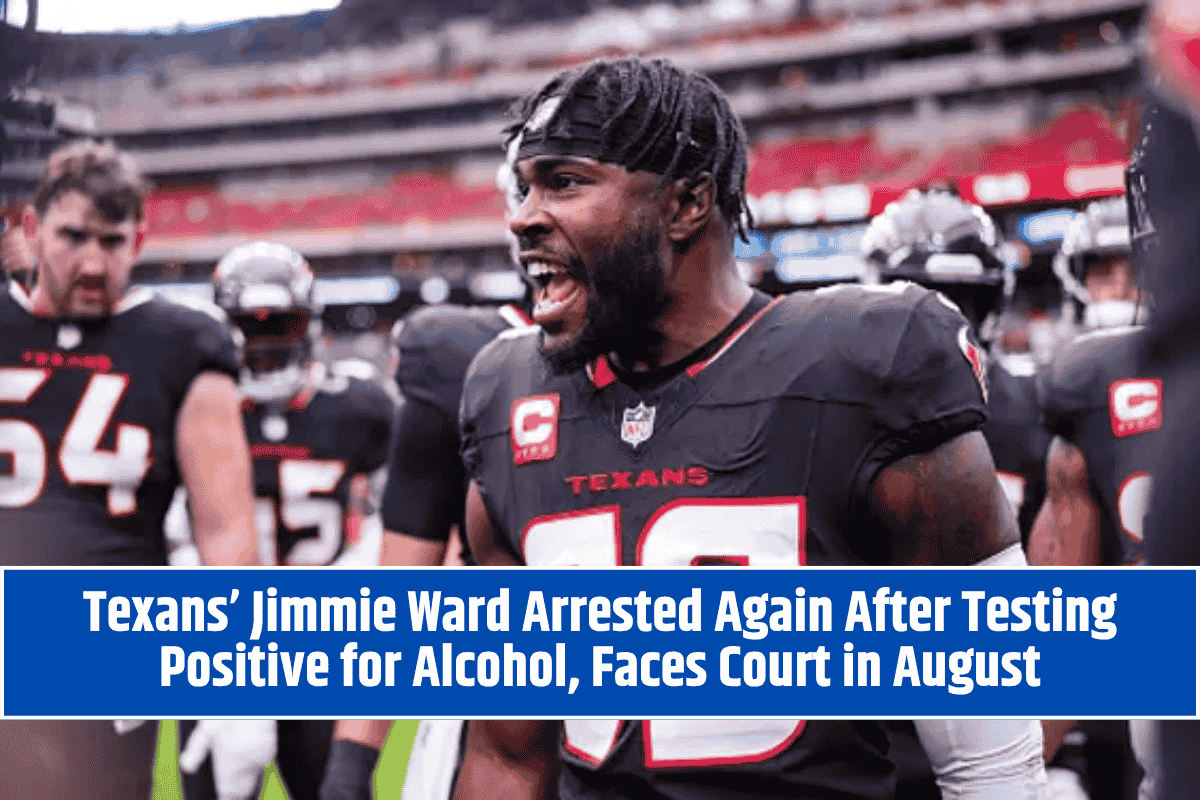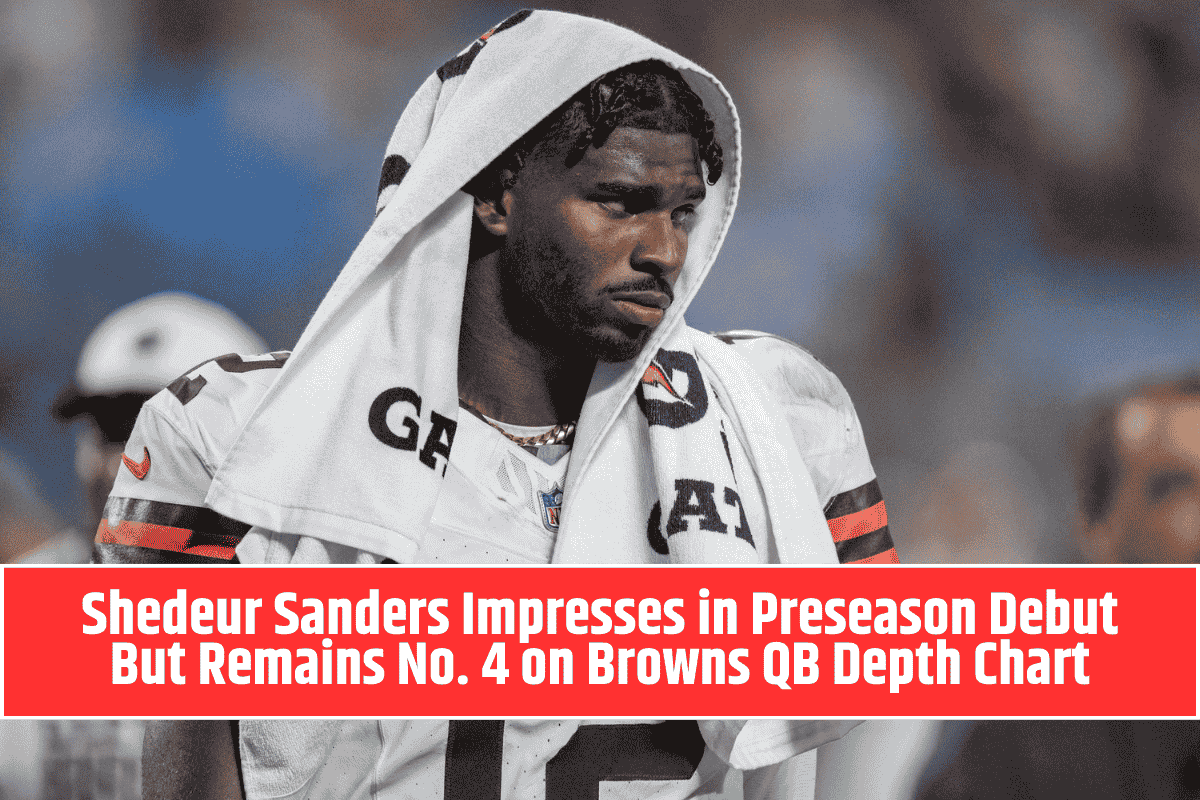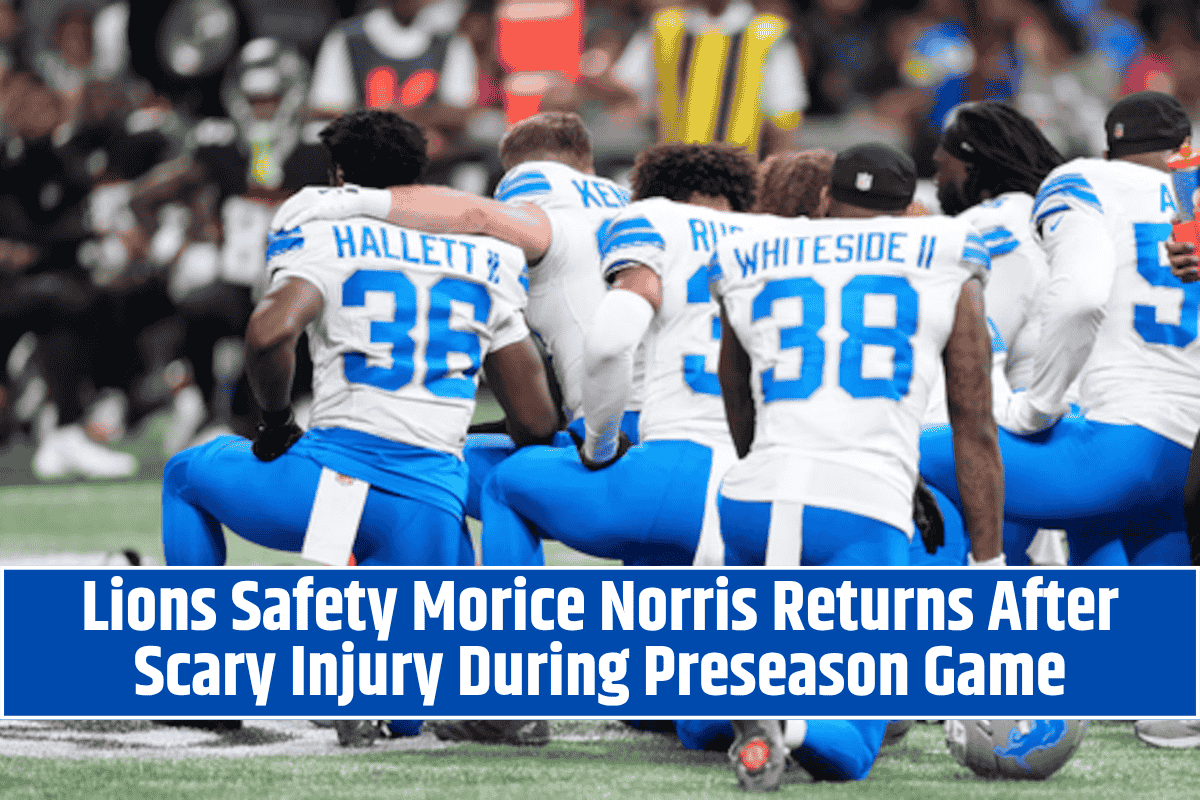Houston Texans safety Jimmie Ward was arrested again on Thursday, just three months after his first arrest. This time, the reason was not a new crime but a violation of the terms of his bond — he tested positive for alcohol, which goes against court rules.
Why Was He Arrested?
Ward’s lawyer, Steve Jackson, confirmed that the 33-year-old player tested positive for alcohol, which triggered an immediate response due to the court’s strict zero-tolerance policy.
Even though there were no new charges or any contact with the person involved in his original case, the court required Ward to spend one night in jail as a penalty.
Background on His First Arrest
In June 2025, Ward was charged with assault involving family violence—a serious third-degree felony in Texas. According to reports, his fiancée claimed he strangled and threatened her during an argument. She also filed for an emergency protective order, which was approved by the court.
Despite the serious nature of the original accusation, his lawyer believes the case will likely be dismissed. He told reporters,
“We expect it to be no-billed and dismissed once the grand jury hears it.”
Upcoming Legal Dates
Ward is scheduled for a court appearance on August 13, followed by a grand jury hearing on August 31. The grand jury will decide whether there is enough evidence to proceed with formal charges or dismiss the case.
Current Status with the Texans
Ward is not currently playing. He is recovering from offseason foot surgery and is on the Active/Physically Unable to Perform (PUP) list. That means he’s still part of the team but is not practicing or participating in games.
The Houston Texans have not released an official statement yet, but it’s likely the team will wait for the legal process to unfold before taking any action.
If the case is dismissed by the grand jury, Ward could return to the field once medically cleared. However, if charges are formally brought forward, both the NFL and the Texans might choose to take disciplinary action, depending on the league’s personal conduct policies.












